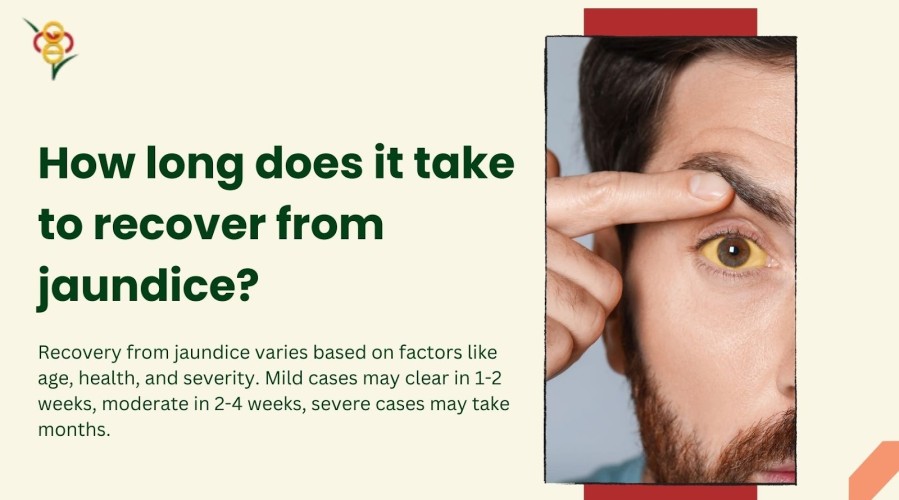Learn effective solutions for digestive problems with expert tips to improve gut health, reduce discomfort, and maintain a healthy digestive system.
How long does it take to recover from jaundice

Jaundice makes your skin and eyes turn yellow. It’s not a disease but a sign that something is not right with your liver or blood. Many people who get jaundice want to know how quickly they can expect to feel better. This post will explain what affects recovery time and how you can help yourself get better.
What Affects Recovery Time?
Recovery time can vary a lot depending on a few things:
- Your age and health: Younger and healthier people usually recover faster.
- The cause of jaundice: Some causes, like infections, are easier to treat than others like chronic liver diseases.
- How severe it is: Light jaundice usually goes away quicker than severe cases.
Typical Recovery Times
It’s hard to say exactly how long it will take because everyone is different, but here are some general ideas:
- Mild jaundice: Often clears up in 1 to 2 weeks if it’s due to something simple like a minor infection.
- Moderate jaundice: Might take 2 to 4 weeks to get better.
- Severe jaundice: If it’s because of a serious liver problem, it could take months to improve.
Tips for Managing Jaundice at Home
While you should always follow your doctor’s advice, there are some things you can do at home to help your recovery:
Eat Right
- Fruits and vegetables: They are good for your liver because they are full of vitamins.
- Whole grains: These help your liver by giving it the nutrients it needs to work well.
Live Healthily
- Drink plenty of water: This helps your liver flush out toxins.
- Stay away from alcohol and other toxins: These can make liver problems worse, so it’s best to avoid them.
- Check your health regularly: Keep an eye on your symptoms and see your doctor for liver tests if needed.
When Should You See a Doctor?
It’s important to talk to a doctor if:
- Your jaundice doesn’t get better or worse after two weeks.
- You start feeling really tired, confused, or more sick.
- You get other symptoms like strong pain in your belly, fever, or your pee turns very dark.
Recovering from jaundice takes time and depends a lot on what caused it. This guide gives you a basic idea, but your own recovery might be different. If you have jaundice, it’s very important to see a doctor to find out what’s causing it and how to treat it.
If you're worried about jaundice, you can schedule an appointment at GEM Hospital. They have experts who can help you understand your symptoms and get the right treatment.
Blogs & Article
Explore current research trends in digestive health, including new treatments, advanced diagnostics, and innovations improving gut health and patient care.
Discover common digestive health myths and the real facts. Learn simple tips to improve gut health and maintain better digestion for a healthier life.


